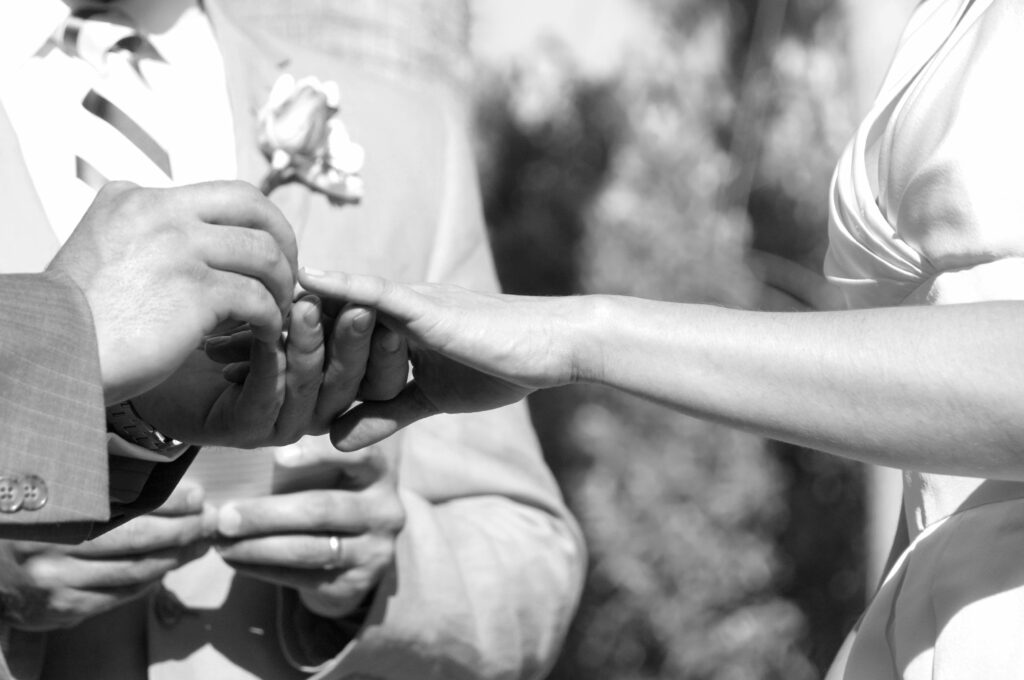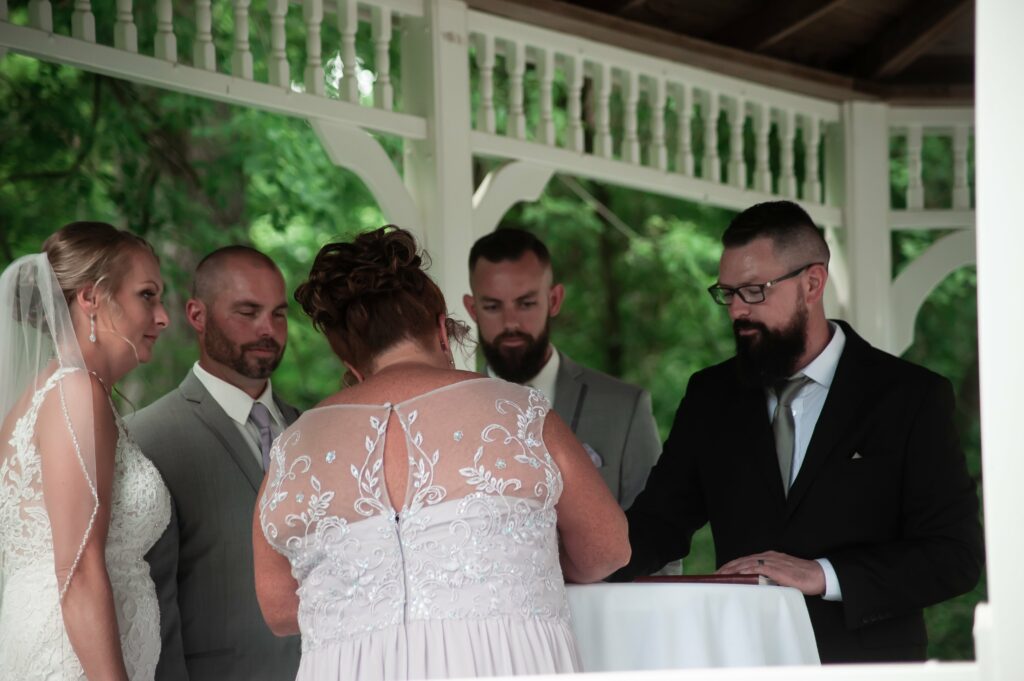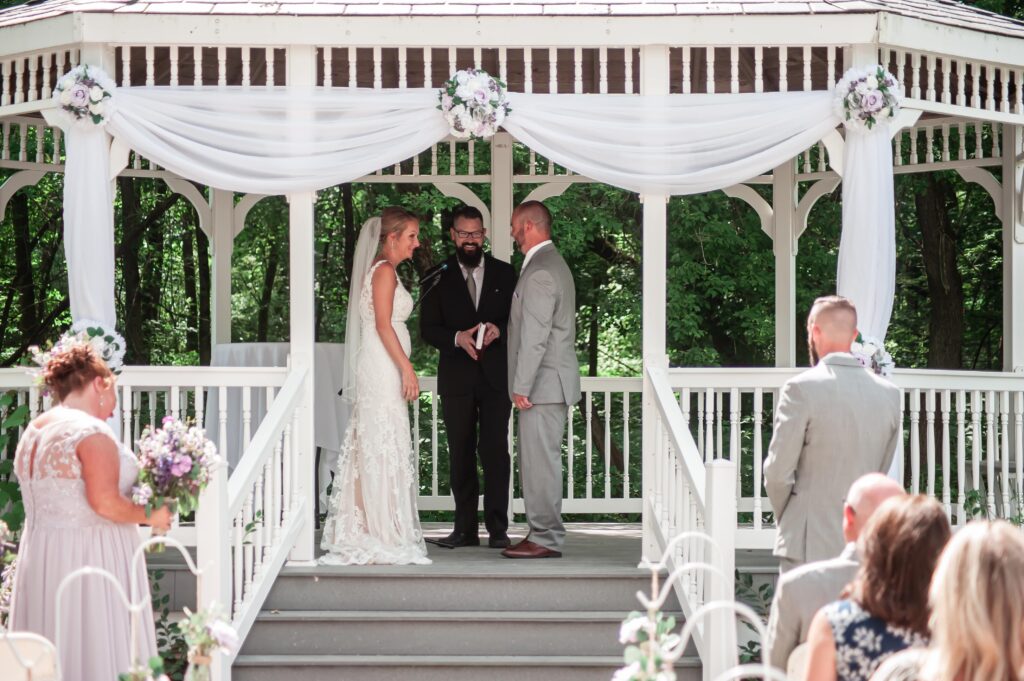
Duties of a Wedding Officiant
Although probably not the first thing you think of as you start to plan a wedding ceremony and reception, the officiant is an integral part of your event. Aside from just dotting the official I’s and crossing the legal t’s, your wedding officiant provides a framework for how you honor one another and the marriage you’re about to enter. Here’s what you’ll need to know about what they do and how to choose a wedding officiant:
The Officiant’s Job
Put simply, your officiant is there to walk you through your ceremony and make your marriage a legal one. It sounds simple enough, but a lot more goes into an officiant’s job than just some words and a signature. They set the stage and run the show that is your ceremony. From introduction to closing, it’s their tone and words that your guests experience your unity through. Each officiant will perform the task a little differently, but we’ll outline the traditional order of a wedding ceremony.

How to Choose an Officiant
Depending on your state marriage laws, you may have many options for choosing an officiant. For religious weddings, couples typically choose a religious leader they know and respect. Secular weddings may require some asking around for a professional wedding officiant, or couples may opt to recruit a friend or family member to follow state guidelines for ordination and lead them through their wedding ceremony. Sources like TheKnot.com are great places to find lists of officiants in your area, as well as many other vendors you may need.
Introduction & Opening Remarks
This could be the classic “Dearly beloved…” or a variation that represents your setting personally. Depending on who officiates your wedding ceremony, they may have a tried and true introduction they stick to, or they may tailor it based on each couple they speak for. Once the stage is set with those first words and they’ve introduced themself, they may speak about how they know you or your importance in their life.
Address the Couple
At this point, they typically shift their direction from the guests to the couple. Your officiant may take this time to read a ceremony poem or scripture that emphasizes the significance of the commitment you’re about to make to each other, and they may outline basic expectations for your lives going forward.
Exchange Vows
You can choose to recite the traditional vows read to you by your officiant, or you can write your own wedding vows to read at your ceremony.

Exchange Rings
Next, your officiant walks you through exchanging rings (this is where you have the opportunity to smile and hold for your photographer to get the perfect shot).
I Now Pronounce You…
I’m sure you know the rest! This is where the officiant lets everyone know it’s official.
The Kiss
On queue, the aww moment everyone has been waiting for, and your first one as a married couple!
Closing Remarks & Recessional
Once the moment is complete, your officiant will have a few last words before dismissing the wedding party to start their recessional with the newlywed couple in the lead. This is where your officiant could add in a marriage blessing and/or announce reception plans so guests know where to head and what to expect next.
And that’s it! It might look like quite a list, but your wedding ceremony is likely to go by quickly. Recording your wedding ceremony is a great way to preserve the moment for the two of you to experience again later, whether you hire a wedding videographer or go for a diy setup, like a cellphone tripod.
